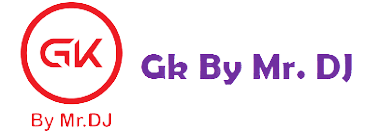Actual Product
It is a consumable product, which can also be a service or idea that a customer is purchasing. Contrary to the overall consumer perception of a product, there are actually three different levels which include the core, actual and the augmented product.
The core product is also known as an added value benefit or what the actual product’s value to the consumer may be. This can be added convenience or how it enhances or improves on or solves a problem for the consumer. Products tend to have a whole series of features but may only provide a small number of benefits to the actual consumer.
The actual product is the tangible, physical product and what the average person would think of under the generic banner of product. And when combined with the augmented product, like a warranty or customer service after the sale, the core gains its value.
Marketers will aim to discover the consumer’s preference for benefits and will match individual features to the preference. That is why professional salespeople for example, often ask many questions whereas a novice salesperson will just tell you the features of the product.
In regard to new product research and development, there is great care to incorporate all three elements to satisfy and also anticipate consumer needs as well as deliver products that offer benefits at the core, actual and augmented levels..
Did you know that every product has 3 dimensions?
To most people a product is a one-dimensional tangible good or intangible service. In other words, to the broader population a product is nothing more than something we buy. We exchange money and in return we receive a product.
To business marketers, however, a product must be considered in a broader context. There’s more to a product than the value proposition (product of value) we buy. Much more.
In reality, there are three separate, yet closely related components to every product we buy or sell. From a marketing standpoint, these three dimensions are the:
- Actual product;
- Core product; and
- Augmented product.
Actual product
The actual product is the second product level and is quite simple to understand. The actual product is that the overall product design and the product features. If you were to describe a product in detail, then you would be describing its product features – which is the actual product.
As an example, let’s consider breakfast cereals again. When describing the cereal you would identify the following product features: shape, taste, texture, size, color, aroma, crunchiness, smoothness, ingredients, packaging, name, brand, images, and so on.
Obviously there would be 1000s of ways to design a breakfast cereal, but this would be the actual product design (set of product features) for a particular breakfast cereal offering. A key goal of the marketer is to ensure that the product design needs the core need (or required set of benefits) for the consumer. This means that there should be a relationship between the first product level (core need) and the second product level (a set of product features designed to meet that core need).
The actual product is the product features and its design. Products typically have lots of features but very few actual benefits (core benefits) to the customer.
Returning to our mobile phone example, then the actual product consists of the design and features of the phone, including:
- Dimensions.
- Color.
- Screen size.
- Bluetooth compatibility.
- App ecosystem size.
- Packaging.


